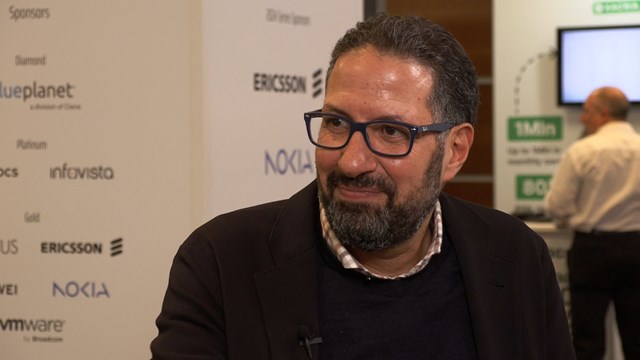
- Accenture snaps up umlaut
- Orange identifies cause of outage
- Broadband gear market ramps
A digital engineering acquisition and an in-depth outage apology from Orange lead the way in today’s industry news overview.
Accenture is to acquire umlaut, a German engineering consulting and services specialist, for an undisclosed sum in a bid to broaden its appeal to enterprises seeking to benefit from cloud, AI, 5G and other technology advances. Accenture says the move will “add more than 4,200 industry-leading engineers and consultants across 17 countries to Accenture’s Industry X services, and expand the company’s capabilities across a range of industries, including automotive, aerospace & defense, telecommunications, energy and utilities.” The German firm’s expertise covers “traditional and digital engineering services; testing and validation of smart connected products; strategy, process and organizational consulting; and hardware product development as well as software development,” noted Accenture in this announcement.
Nokia’s Deepfield security unit says an analysis of global DDoS traffic conducted between January 2020 and May 2021 found that the majority of DDoS attacks originate from fewer than 50 hosting companies and regional providers. And worryingly, it also uncovered a more than 100% increase in daily DDoS peak traffic during that period. Read more.
Orange has issued a statement about the causes of the 2nd June network outage that impacted emergency services calls. According to Orange, the problem was caused by a software bug in its call server systems that disrupted the service despite having redundancy across six sites. For the full explanation of what happened and how Orange is seeking to strengthen its operations and systems to ensure there is no repeat, see this press release.
Investments in broadband access network equipment hit $3.3 billion during the first quarter of 2021, up by 18% compared with the same period a year earlier, according to data collected by research house Dell’Oro Group. Of particular note was the significant ramp in spending on 10 Gbit/s PON ports, noted Jeff Heynen, Vice President, Broadband Access and Home Networking at Dell’Oro Group. “The shift to 10 Gbps PON technologies is happening quickly and on a global basis. The only thing preventing further expansions are supply chain constraints and increased costs,” stated Heynen. That analysis chimes with the views shared by Nokia Network Infrastructure executives during a recent conversation with TelecomTV. For more on Dell’Oro’s findings see this press release, and for more on the Nokia’s team’s view of the market, see Fibre now as critical as 5G to operators: Nokia’s Guillén.
Ooredoo Oman is deploying 4G and 5G fixed wireless access (FWA) infrastructure sourced from Nokia. Read more.
Huawei’s UK unit suffered a 27.5% year-on-year dip in sales to £913.3 million as a result of the UK government’s decision to limit the Chinese company’s business opportunities in Britain, most notable in the 5G and fixed broadband infrastructure sectors, reports City A.M.
Kepler Communications, which is building a low-earth orbit (LEO) network of satellites to provide data connectivity not only to customers back on Earth but also for in-space applications (such as Earth Observation and Space Tourism), has raised $60 million in its Series B round of funding, taking its total raised to $90 million. Read more.
Amazon Web Services (AWS) is to open an infrastructure region in Israel in the first half of 2023. “The AWS Israel (Tel Aviv) Region will enable even more developers, startups, and enterprises as well as government, education, and non-profits to run their applications and serve end-users from data centers located in Israel,” noted the hyperscaler. AWS has also been selected by the government of Israel as the “primary cloud provider” for the ‘Nimbus’ contract issued by government ministries and subsidiaries. Read more.
The global chip shortage is hitting the procurement and network construction plans of rural operators in the US, NTCA-The Rural Broadband Association has informed US regulator the FCC. “NTCA members report widespread delays in obtaining communications equipment of all kinds, which extends not only to electronics (such as routers, optical network terminals, and customer premises equipment (“CPE”) but also fiber… While members most frequently reported shortages or delays in obtaining fiber or CPE, they also reported delays in obtaining network electronic components for fixed wireline, fixed wireless and mobile services. Nearly 60% of members who responded to a recent informal survey conducted by NTCA indicated an awareness that delays in electronic components appeared to be attributable to semiconductor shortages; these members also reported that the delays affected a variety of semiconductors, including systems-on-a-chip, microprocessors, memory chips and standard chips. The minimum delay reported by members was generally three to four weeks, with some members reporting a delay of greater than 12 weeks and, in some instances, not being able to obtain the equipment for the 2021 construction season.” For further comments from the NTCA, see this FCC document.
According to a new Juniper Research study, the number of global eSIM module shipments will increase from 430 million in 2020 to 822 million in 2025, an increase of about 90%. “The research identified the public sector as the fastest-growing area, with shipments of eSIM‑enabled public sector sensors expected to increase by 500% over the next four years, as smart city services benefit from the flexibility of the growing eSIM ecosystem,” noted the research company in this announcement.
Email Newsletters
Sign up to receive TelecomTV's top news and videos, plus exclusive subscriber-only content direct to your inbox.




